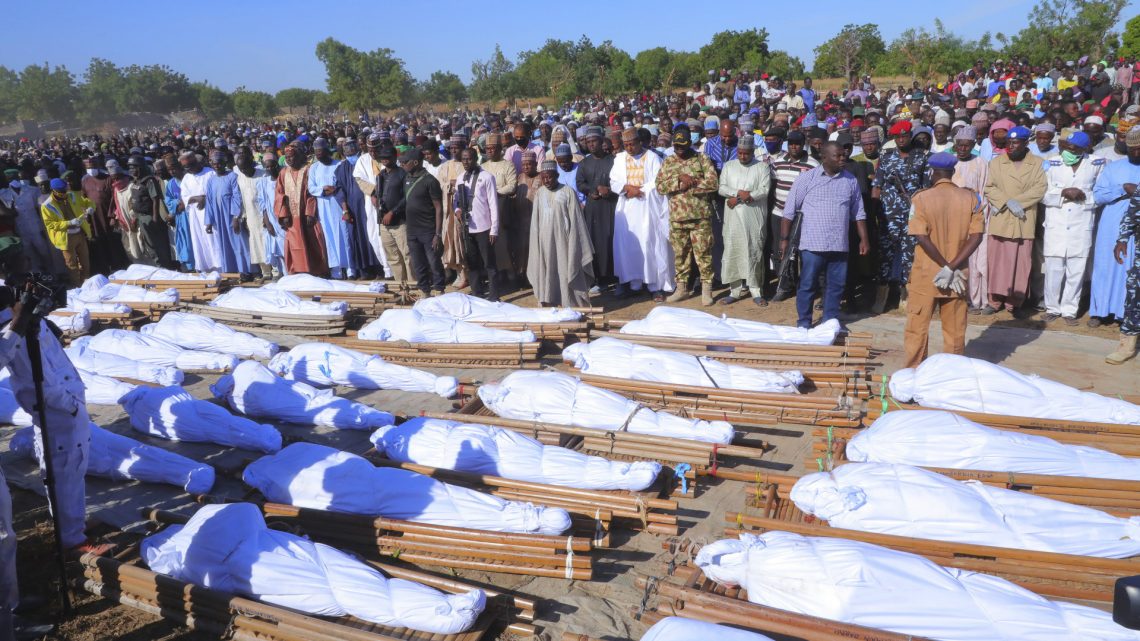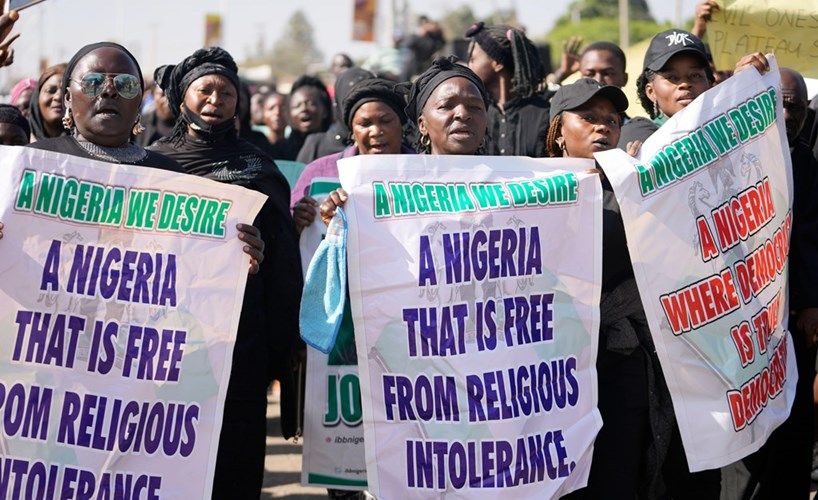
Genocide of Christians in Nigeria.
The Crisis in Nigeria: Christians under Siege
In recent years, the situation facing many Christians in the central and northern regions of Nigeria has become alarmingly severe. While the full picture is complex, multiple credible reports indicate that Christian communities are being disproportionately affected by violence, displacement, and the destruction of their homes, places of worship, and livelihoods.
What is happening
- Various militant groups — including Boko Haram, Islamic State West Africa Province (ISWAP) and militias often described as Fulani herder-gunmen — have been linked to many of the deadliest attacks in Nigeria’s Middle Belt and north-east.
- One report by the International Society for Civil Liberties and Rule of Law (Intersociety) estimates that between 2010 and October 2025, over 125,000 Christians were killed and more than 19,000 churches torched.
- Other figures: Between 2019 and 2023, one report states about 16,769 Christians were killed — averaging over 4,000 per year.
- The violence is frequently intertwined with conflicts over land, grazing rights, water-resources and climate change, especially in the Middle Belt where farmer-herder tensions run high.
- Many Christian villages report being abandoned after repeated attacks, children and families living in fear, and pastors or church buildings being targeted.
Why the term “genocide”?
Some analysts and Christian organisations treat the scale, targeting of Christian communities, and the destruction of Christian institutions as amounting to a genocide or at least “ethnic-religious cleansing.” For example:
- The Genocide Watch website states: “Since 2000, 62,000 Christians in Nigeria have been murdered in genocide perpetrated by Islamist jihadist groups…”
- Bishop Wilfred Chikpa Anagbe of Makurdi has described the violence in his region as a “silent genocide” of Christians.
But there is disagreement
It’s important to state clearly: there is no consensus that what is happening qualifies legally as genocide under international law (which has a very specific definition). Key points of disagreement include:
- The government of Nigeria rejects the term “genocide against Christians,” stating that the security challenges are broad, affect all faiths, and arise from criminality and terrorism rather than organised religious targeting.
- Some analysts caution that the framing of “Muslims killing Christians” oversimplifies complex local conflicts that involve land, identity, climate change, resource competition, and weak governance.
What does this mean for Christians in Nigeria?
- Many Christian communities in regions like the Middle Belt (e.g., states such as Benue State, Plateau State, Taraba State, Kaduna State) feel under siege: attacked in their homes, their farms destroyed, their children displaced.
- Displacement numbers are large: one report states there were 1.1 million internally displaced persons (IDPs) in Nigeria in 2014, rising to 3.4 million by 2023.
- The psychological impact is heavy: trauma, fear of returning home, loss of livelihood, breakdown of community structures.
- Churches, pastors and Christian schools are both physical and symbolic targets. Their destruction results in both immediate loss and long-term damage to local Christian life.
What’s driving the violence?
Several intertwined drivers:
- Extremist groups: Boko Haram and ISWAP in the north-east have long targeted Christians and Christian institutions.
- Herdsmen-farmers conflict: In the Middle Belt, nomadic or semi-nomadic herder groups (often Fulani) clash with farming communities (often Christian). These clash over land, water, grazing, and climate pressures. Many attacks in these areas spill over into violence with religious/ethnic overtones.
- Weak governance and impunity: Many villages attacked find little state protection; perpetrators are often not brought to justice.
- Displacement and land grab: Some reports say Christian communities once shut out of power become more vulnerable when displaced or overtaken by other groups.

Where does that leave us?
For Christians such as yourself who believe in Jesus Christ (and for all who value religious freedom, justice and human dignity), this situation calls for a multifaceted response:
- Prayer & awareness: Sustained prayer for the persecuted, for wisdom for leaders, for peace. And bringing awareness to the plight of these communities—even when media coverage is limited.
- Support and solidarity: Partnering with trusted Christian humanitarian and relief organisations that assist displaced Christians, rebuild churches and schools, provide trauma counselling, and advocate for justice.
- Advocacy for justice: Encouraging authorities (local, national, international) to ensure protection of vulnerable communities, accountability for attacks, and holistic solutions to the root causes (resource conflict, climate change, identity issues).
- Shoring up local Christian communities: Encouraging local churches in Nigeria (and globally) to invest in resilience: theological training, community development, reconciliation efforts, peace-building among Christians and Muslims alike.
- Discernment in terminology: While the term “genocide” carries weight and urgency, it also requires precision—both in its legal usage and in advocacy. Mis-labelling may hinder credibility or escalate conflict rather than heal it. As some analysts point out, the Nigerian conflict is not reducible simply to faith persecution.
A Christian perspective
As a believer in Christ, it’s helpful to remember: our gospel demands both truth-telling and love. We mourn with those who mourn. We stand up for the oppressed. We pray for enemies. We work for reconciliation, justice and peace (see Romans 12:14-21; Micah 6:8). While Christian communities in Nigeria face persecution, we also remember that Jesus is with them, and that the global body of Christ is called to be a witness of hope.
Conclusion
The situation of Christians in Nigeria is deeply troubling. Many are being killed, displaced and silenced. Churches and homes are burned. Lives are uprooted. While the full classification of “genocide” is debated, the reality of Christian suffering is undeniable. As Christians, we are called to respond: with prayer, with action, with solidarity. We must care for our brothers and sisters in Nigeria—and we must work, in whatever capacity we can, to see peace, justice and flourishing come to that land.
If you like, I can pull together personal stories of Nigerian Christian survivors and ways you can help via specific organisations and campaigns. Would that be useful?
Source:
https://chatgpt.com/s/t_690ba87daa1481918c0e94a648ba94b0

Guds Navn YHWH
Du vil kanskje også like

En selvfølge for oss i dag…
15/08/2022
Mutert #koronavirus i #Halden
31/01/2021
